January 29, 2013
Edited by David Sanders
Specimen Days
January 29, 2013
1689 – Hubert K. Poot, Dutch poet, is born.
1706 – Charles Sackville, 6th Earl of Dorset, English poet and courtier (b. 1638), dies.
1763 – Louis Racine, French poet (b. 1692), dies.
1783 – Vasili A. Zjukovski, Russian folk poet/translator (Homerus) [NS=Feb 9], is born.
1798 – Henry Neele, London, poet, is born.
1837 – Aleksandr Pushkin, poet/novelist (Golden Cockeral), killed in a duel.
1888 – Edward Lear, poet/author, dies at 75.
1895 – Muna Lee, American poet (d. 1965), is born.
1900 – Willem F. K. Hussem, Dutch painter/poet (Coastline, Lookout on Sea), is born.
1915 – Halfdan Rasmussen, Danish poet/WWII resistance fighter (Skoven), is born.
1933 – Sara Teasdale, American poet (b. 1884), dies.
1944 – Hans Plomp, Dutch writer/poet (Venus in Holland), is born.
1957 – Grazyna Miller, Italian poet, translator, and journalist, is born.
1963 – Robert Lee Frost, US poet (New Hampshire, 4 Pulitzers), dies at 88.
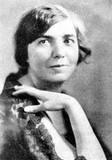 I remember you because of a grassy hill
I remember you because of a grassy hill
Where the violets grew thicker than the grass,
And through my memory flames and whistles still
A flock of red-winged blackbirds we watched pass.
Because of a rain-filled night I remember you,
And a tree we came on suddenly in the fall,
And a vague horizon that broke and foamed in blue,
— But I do not remember any words of yours at all.
— Muna Lee (1895–1965)
Poetry In The News
Academy Names New Chancellors: Nelson, Rankine, Wright

The Academy of American Poets announced last week that poets Marilyn Nelson, Claudia Rankine, and C.D. Wright have been elected Chancellors of the Academy of American Poets, joining an illustrious group of some of the most distinguished poets in the United States to have previously held the position, including John Ashbery, W.H. Auden, Elizabeth Bishop, Lucille Clifton, and Adrienne Rich. Read more at Coldfront.
Inaugural Poet Is Back Home in Maine
Richard Blanco, the inaugural poet who has called Maine home for almost 4 years, has returned from his whirlwind trip to Washington D.C. President Obama's choice of Blanco was noted because Blanco is the first inaugural poet to be hispanic or openly gay. At 44, he also is the youngest. He sat down to talk with NEWS CENTER's Rob Caldwell on Thursday. Read more at WCSH.
Charles Wright Wins $150,000 Bollingen Prize for His Poetry
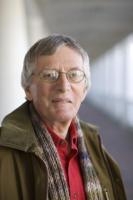
Richard Blanco, the inaugural poet who has called Maine home for almost 4 years, has returned from his whirlwind trip to Washington D.C. President Obama's choice of Blanco was noted because Blanco is the first inaugural poet to be hispanic or openly gay. At 44, he also is the youngest. He sat down to talk with NEWS CENTER's Rob Caldwell on Thursday. Read more at WCSH.
World Poetry
Welcome to Rooftop Rhythms, Abu Dhabi’s Poetry Scene
Dubai: Qatar’s Court of Appeals on Sunday postponed to February 25 the trial of a local poet sentenced to life in prison, Kuwaiti news site Al Aan has reported. Mohammad Al Ajami, also known as Mohammad Ibn Al Dheeb, was handed the sentence in November after the state security court found him guilty of “inciting to overthrow the ruling system” and “insulting the emir” in a poem he allegedly recited in Cairo. Read more at Gulf News.
Film on Pangasinan Poetry Scores in Paris Fest

Filipino filmmaker Christopher Gozum wasn’t able to attend the 10th International Festival Signes de Nuit in Paris, France—where his film “Anacbanua (Child of the Sun)” won in October last year. He had pressing commitments in Riyadh, Saudi Arabia, where he works as a medical videographer and video editor, he told the Inquirer in an e-mail interview. Gozum said “Anacbanua,” which won the Prix de Signes in the Paris fest’s Cinema in Transgression section, went beyond Pangasinan’s poetry tradition. “The anlong, or Pangasinense poems that are featured in the film, articulate my province’s distinct culture and identity,” he said. Read more at the Inquirer.
New Books
The Breaking of the Day by Michael Heffernan
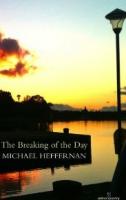
[Paperback] Salmon Poetry, 94 pp., $21.95
As much as he can make them, Heffernan's poems are inventions of a reality in words caught in passing between strangers who stop and listen without needing to know why. Many are poems of places, from almost anywhere in Ireland to northern Michigan near the verge of the farther shores of the uppermost Great Lakes.
Come On Everybody: Poems 1953–2008 by Adrian Mitchell
[Paperback] Bloodaxe Books Ltd ,432 pp., $35.95
Come On Everybody brings together poems from a dozen collections published by Adrian Mitchell over five decades. A pacifist prophet who remained true to his heartfelt beliefs, Mitchell reported back for over half a century from a world blighted by war, compromise, double-talk, and pragmatism without losing his innocence, integrity, and impish sense of humor.
Lime Green Chair by Chris Andrews
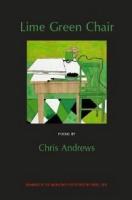
[Paperback] Waywiser Press, 96 pp., $16.95
Lime Green Chair by Chris Andrews was chosen by Waywiser Press and their guest judge, Mark Strand as the 2011 Anthony Hecht Poetry Prize winner. It is a collection of poems prompted by episodes from life in urban Australia, or dreamt, or constructed from curious fragments of language, or, most often, produced in all three ways. They range in tone from the comic to the elegiac.
Selected Poems by Thomas Krampf
[Paperback] Salmon Poetry, 146 pp., $21.95
The seventy poems of this new and selected collection by award-winning Appalachian poet Ron Houchin base themselves on a life within the spirit of place on the banks of the Ohio River. They include a section of all new work combined with other relevant poems of lived-experience from his five previous volumes and three chapbooks of poetry published in Ireland and the US.
Recent Reviews
W.S. Merwin’s Love of Foreign Language
by Adam Plunkett
In the world of letters, there’s prolific and there’s W.S. Merwin. The former Poet Laureate has written twenty-six books of poetry in the last six decades and has still found the time to translate twenty-two books of other people’s poems. The translations are so voluminous, and the source languages so varied—from Japanese to Swedish, from Sanskrit to Crow—that you would expect a selection of his translations to be an opus of world literature, a small window into a pre-Babel world. But rather than look outward, this collection presents an inward vision: the translations make sense of the translator. Read more at the New Republic.
Alien vs. Predator, by Michael Robbins, and More
by Eric McHenry
Robbins is one part Ashbery and two parts Tupac. He celebrates his selves. In Alien vs. Predator, the “I” has no fixed identity but is constantly making outrageous boasts: “I killed the boar / ’cause boar’s the game I came here for. / I clear the jungle with the edge of my hand. / I make love to an ATM. I enrich uranium. / Dude, this aggression will not stand.” Robbins is also, obviously, part Jimi Hendrix and part Jeff Bridges, with a thousand other voices vying to be the one inside his head, from Theodore Roethke to Method Man. Read more at the New York Times.
All Just
by Nikolai Duffy
In his book, John Ashbery and the American Tradition (MUP, 2000), David Herd outlines the ways in which Ashbery’s poetry is occasional, which is to say, it is a poetry which reflects, and makes much of, the occasion of its making. Ashbery’s intention, Herd writes, ‘in aiming to write the poem “fit” for, or belonging to, its occasion, is to achieve a poem appropriate to the occasion of its own writing. His concern is with the time, place, situation and circumstances of the poem itself.’ Read more at Literateur.
American Isis, Mad Girl’s Love Song Examine How It Fell Apart for Sylvia Plath
by Julia M. Klein
The fatal union of two poetic titans, the deadly foreshadowing of Sylvia Plath’s posthumously published “Ariel” poems, her appropriation by the feminist movement — all have combined to make Plath an irresistible (if perpetually resistant) biographical subject. Even Ted Hughes, the estranged husband and British poet laureate who controlled her estate, censored her work, and resisted interviews about her, managed to have his say before he died in the moving verses of Birthday Letters (1998). Read more at the Boston Globe.
Correspondences
Poetry, Puppets and Playgrounds

by Alan Feuer
For Tracy K. Smith, last year’s winner of the Pulitzer Prize for Poetry, Sunday is a family day. “I travel a lot during the week, teaching and doing readings,” said Ms. Smith, whose award-winning collection, Life on Mars, included a villanelle about geese being gassed at Kennedy Airport. “So it’s nice to keep Sundays fairly local.” An assistant professor of creative writing at Princeton University, Ms. Smith, 40, lives in Boerum Hill, Brooklyn, with her husband, Raphael (or Raf) Allison, 42, an assistant professor of literature at Bard College; their 3-year-old daughter, Naomi; and their dog, Shaba, a Rhodesian Ridgeback and pit bull mix. Read more at the New York Times.
Ojibwe Poet Heid Erdrich Talks About Her Love of Language

by Mark Fogarty
Heid E. Erdrich, Ojibwe (Turtle Mountain Band of Chippewa), lives her life wrapped up in language as a director of Wiigwaas Press, the Ojibwe-language publisher she started with her sister, award-winning author Louise Erdrich. To mark the publication of Cell Traffic: New and Selected Poems (University of Arizona Press, 2012), Heid’s fourth poetry collection, ICTMN caught up with the writer for a chat. Read more at Indian Country Today.
Timothy Donnelly on Writing Challenging Verse, the Cultural Faith Bred by 30 Rock, and the Poet’s Need to Reach for the Eternities
by Jess Cotton
The last time Harper’s Magazine readers saw Timothy Donnelly’s work was in April 2009, when his masterly poem “The Cloud Corporation” ran in the Readings section. Donnelly, the poetry editor for the Boston Review and the author of two collections, Twenty-seven Props for a Production of Eine Lebenszeit(2003) and The Cloud Corporation(2010), recently released collaborative book, Three Poets (Minus A. Press), with John Ashbery and Geoffrey G. O’Brien. Donnelly’s poetry combines formal virtuosity and imaginative discursiveness with a casual pitch and conversational ease. I met him to discuss his work over Guinness and empanadas near Columbia University, where he teaches in the creative-writing department. Read more at Harper's.
Broadsides
Sir Geoffrey Hill Is Our Greatest Living Poet
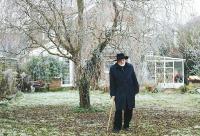
by Peter Popham
It was in Afghanistan nearly 11 years ago that Geoffrey Hill came back to me. The war was the biggest story in the world: I was the Independent’s south Asia correspondent and, as the Taliban fled Kabul, I filed seven days a week. Meanwhile, colleagues were dropping like flies – four killed with the Northern Alliance, a personal friend and three others butchered on the road from Jalalabad. And all this among the untended debris of earlier wars, the blocks of buildings so shattered and hollowed by bombs and mortars that only their skeletons remained. Read more at the New Statesman.
The Mystery Behind Frank O’Hara’s Most Famous Poem
by Jenny Hendrix
In September 1966, a reading took place at New York University’s Loeb Center, near Washington Square. Less than two months had passed since Frank O’Hara’s death on Fire Island, and the event took on the flavor of a memorial for the recently departed poet. In his memoir, the poet’s longtime roommate Joe LeSueur recalled listening in shock as Kenneth Koch read a remarkable poem of O’Hara’s, which, until that moment, it seemed no one had ever heard. “We were not only moved by the poem,” LeSueur wrote, “but mystified as well. Why had he kept it a secret?” Read more at The New Republic.
Why We Should Memorize
by Brad Leithauser
Much of our daily lives would be dizzyingly unrecognizable to people living a hundred years ago: what we wear and what we eat, how we travel, how we communicate, how we while away our leisure time. But, surely, our occasional attempts to memorize a poem would feel familiar to them—those inhabitants of a heyday of verse memorization. Little has changed. They, too, in committing a poem to memory, underwent a predictable gamut of frustrations: the pursuit of stubbornly elusive phrases, the inner hammering of rote repetition, tantalizing tip-of-the-tongue stammerings, confident forward marches that finish in an abrupt amnesiac’s cul-de-sac. Actually, if the process has altered over the years, perhaps we feel the difficulties of the task more acutely than our ancestors did. Read more at the New Yorker.
Drafts & Fragments
On Ethics and Honesty in Poetry Reviews
by Nigel Beale
I met with Canadian poet/critic Michael Lista several months ago to discuss the state of poetry reviewing in Canada, the need for honesty in criticism, and his take on poet/philosopher Jan Zwicky‘s essay “The Ethics of the Negative Review,” in which she defends her practice, while review editor in the 1990s of The Fiddlehead literary journal, of not publishing negative reviews. Listen at Literary Tourist.
Envoi: Editor’s Notes
Joyelle’s “Future of American Poetry” vs the “Glut”/”Too Much” Discussion
by Johannes Göransson
I was thinking – as I often do – about the role of “glut” in contemporary (and modern) discussions about poetry; how it serves as a threat do the “future” of poetry in so much rhetoric. The Poetry Foundation for example always uses it for self-serving means: There’s all this “glut” of poetry, all this noise, only we know the best stuff. And of course Kenny Goldsmith’s rhetoric is similar. I remember when Steve Burt proposed that there was “too much” poetry and internet writing etc for him to keep up, that it was threatening his professional career (writing papers etc); Kenny Goldsmith replied that he didn’t need to read it all, after all his “conceptual” poetry served as a filter or “managment” against this noise, i.e. he was Canonical, no reason for Burt to lose track of his academic career by reading internet-infesting Montevidayo…. Read more at Montevidayo.
It's not often that I agree with the folks at Montevidayo, although I usually find the discussion there lively, at the least. I do agree with them in this case. There is no more a "glut" of poetry than there is a "glut" of anything else—music, video, political commentary, you name it. And I think even those who complain about it might be glad for it. For there was always a time where it was believed that there was a glut of poetry. What this really means is that there is too much bad. No one says there are just too many great books of poetry being written, nor have they ever. It reminds me of my parents' dismay, after having moved from Ohio to Florida, at the number of northern immigrants moving into the state. Those who object might be careful about where they draw the line at "too much." Someone else might draw the line at them.
—David Sanders